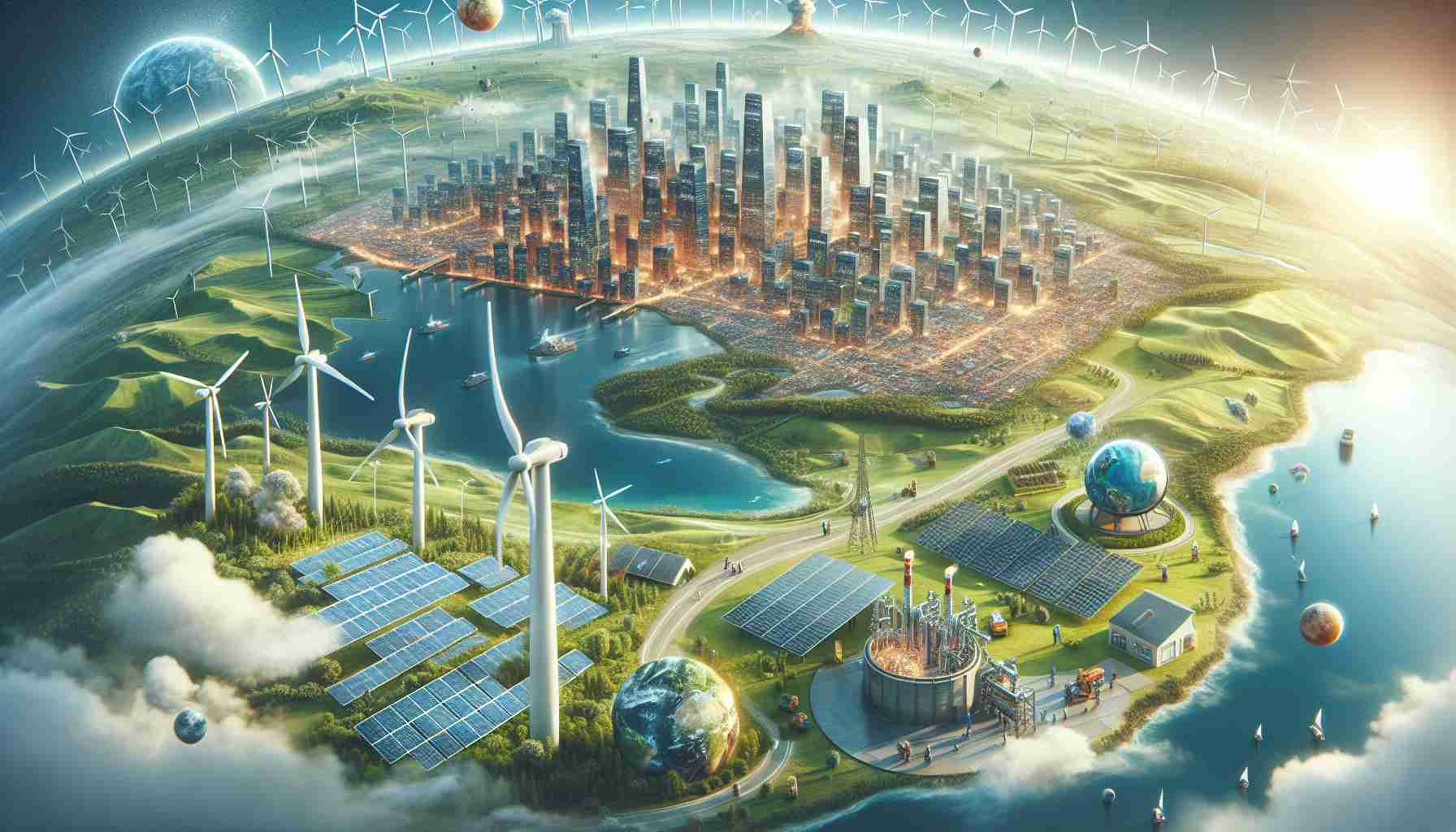The Transformative Power of Renewable Energy
As the globe leans heavily into renewable energy, significant changes are rippling through economies and political landscapes. The transition to green energy isn’t just about financial investments; it’s a major shift with profound implications on multiple fronts.
Revitalizing Job Markets
One of the most striking outcomes of this shift is the booming job market in green sectors. As nations invest in sustainable infrastructure, there is a soaring demand for skilled workers in cutting-edge technologies such as solar and wind energy. This movement not only sparks economic growth but also provides new paths for individuals migrating from traditional fossil fuel jobs, promoting a more sustainable workforce.
Shifting Geopolitical Landscapes
Countries once dependent on oil imports are now transitioning towards energy independence, which reshapes global power dynamics. The declining influence of oil-exporting nations introduces complexity to international relations, fostering a new era of self-reliance and regional energy security.
Challenges of Authenticity
Yet, the rise of green investments isn’t without its pitfalls. Companies face scrutiny regarding their environmental claims, with concerns of “greenwashing” making investors increasingly vigilant. Authentic sustainability is now at the forefront of discussions, urging enterprises to back their commitments with concrete actions.
In conclusion, the renewable energy revolution is much more than an economic trend; it’s a transformative force that intertwines job creation, geopolitical power, and the authenticity of corporate responsibility, steering us towards a more sustainable future.
Broader Implications of the Renewable Energy Shift
The transition to renewable energy is not merely an environmental imperative; it is a transformative force with significant ramifications for society, culture, and the global economy. The acceleration of this shift is poised to redefine how communities interact with energy and how economies function.
Impact on Social Equity
The renewable energy sector holds the potential to address social inequalities by offering affordable, clean energy solutions to underserved communities. By implementing decentralized energy systems, such as microgrids powered by solar panels, these areas can gain access to reliable energy sources. This democratization of energy not only enhances quality of life but also fuels local economies by creating opportunities for entrepreneurship and sustainable development.
Environmental Sustainability and Climate Change
Improving renewable energy uptake is crucial in mitigating climate change effects. As countries transition from fossil fuels, greenhouse gas emissions are expected to significantly decline, contributing to global efforts to keep temperature rises below dangerous thresholds. Moreover, increased investment in clean technologies can lead to biodiversity recovery and better air quality, offering long-term benefits for both ecosystems and public health.
Long-term Economic Growth Trends
As the market for renewable energy continues to expand, future trends point toward increased integration of artificial intelligence and smart technology to enhance energy efficiency and grid reliability. This advancement could herald a new era of energy consumption, prioritizing sustainability while supporting economic growth.
In summary, the renewable energy revolution is a multifaceted movement with profound implications that promise not only to reshape our economies but also to promote equity, environmental sustainability, and technological innovation. The outcomes of this transition will have lasting significance, paving the way for a more resilient and inclusive global society.
The Renewable Energy Revolution: Powering Economic Growth and Global Change
The Transformative Power of Renewable Energy
As societies increasingly embrace renewable energy, the impact is far-reaching, influencing economic structures, job markets, and international relations. This transition is not merely a shift in energy sources—it’s a full-scale revolution with implications for sustainability, technology, and corporate responsibility.
Revitalizing Job Markets
The renewable energy sector is witnessing an unprecedented surge in employment opportunities. According to the International Renewable Energy Agency (IRENA), the global renewable energy workforce reached 12 million jobs in 2020, with projections indicating that this number could exceed 24 million by 2030. This growth is largely attributed to advancements in technology and the increasing reliance on solar, wind, and other renewable resources.
Workers transitioning from fossil fuel industries to renewables are finding new roles that not only offer employment but also contribute to a sustainable future. Vocational training and educational programs are now crucial for equipping the workforce with the skills needed in these fast-evolving fields.
Shifting Geopolitical Landscapes
The ongoing shift to renewable energy is altering geopolitical dynamics significantly. Countries are increasingly moving toward energy independence, reducing their reliance on oil imports. This transition is evident in nations like Germany, which has made substantial investments in solar and wind energy, resulting in decreased vulnerability to energy supply disruptions.
As nations eye renewable sources, there’s a potential for new alliances based on shared technological advancements rather than oil dependencies. This shift alters traditional power structures and encourages collaborations centered around innovation and sustainability.
Innovations and Trends in Renewable Energy
The landscape of renewable energy is continuously evolving, with innovations fostering efficiency and reducing costs. For example, advancements in energy storage technologies, such as lithium-ion batteries and newer alternatives like solid-state batteries, are essential for optimizing the utilization of renewable resources.
Additionally, the trend towards decentralized energy production through microgrids and community solar installations is empowering local populations and reducing transmission losses, leading to more resilient energy systems.
Challenges of Authenticity and Greenwashing
While the renewable energy movement sparks enthusiastic progress, it faces challenges, particularly concerning authenticity. Companies must navigate the complexities of “greenwashing,” where misleading claims about environmental benefits can erode consumer trust. Regulatory frameworks are being developed to enhance transparency and hold companies accountable for their sustainability claims.
Investors are becoming increasingly discerning, opting for businesses that demonstrate genuine commitment to environmental stewardship through measurable actions rather than mere statements of intent.
Use Cases and Global Impacts
The practical applications of renewable energy are vast. Countries like Denmark are leading the way with wind farms providing nearly 50% of their electricity. Meanwhile, nations in the Caribbean are deploying solar energy to reduce reliance on imported oil, thereby enhancing energy security and reducing costs for consumers.
Sustainability and Future Predictions
Sustainability is at the heart of the renewable energy revolution, shaping future business models that prioritize environmental responsibility alongside profitability. As cities and countries commit to net-zero carbon targets by 2050, the global focus will shift to integrating sustainable practices across all sectors.
Market analysis indicates that renewable energy investment is set to grow, driven not just by policy initiatives but also by a growing consumer base demanding sustainable products and practices. Companies that adapt early are likely to benefit from competitive advantages in this expanding market.
Conclusion
The renewable energy revolution represents a critical turning point in the global economy, influencing job creation, geopolitical power dynamics, and corporate ethics. As innovations continue to reshape the energy landscape, the drive towards sustainability is not just a trend but a fundamental shift with lasting implications for all aspects of society.
For more insights into renewable energy and its impact, visit IRENA.


















